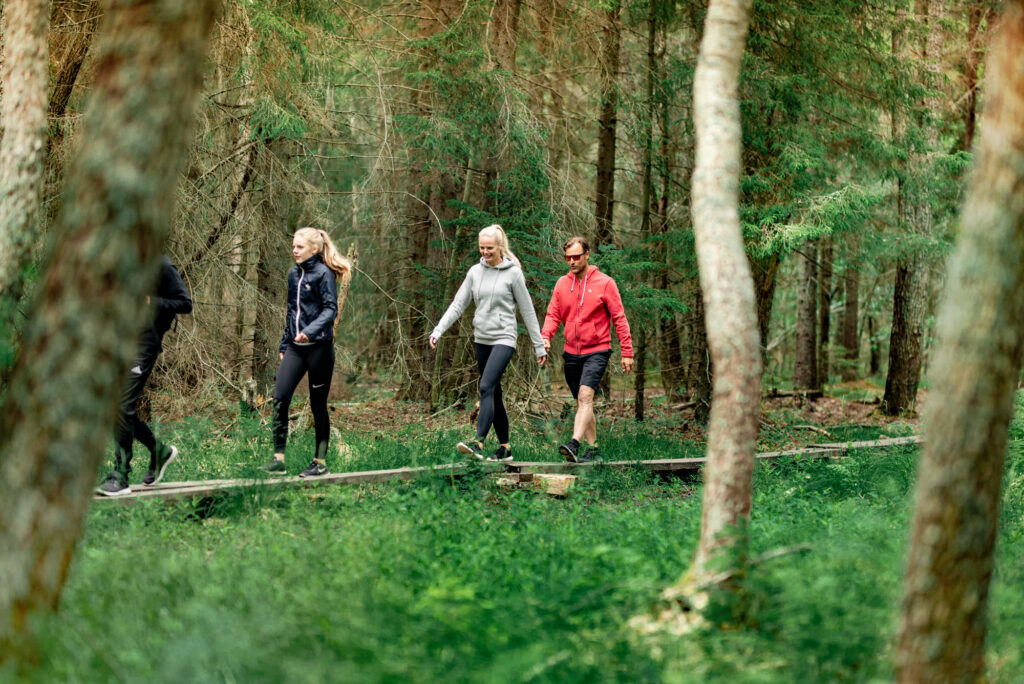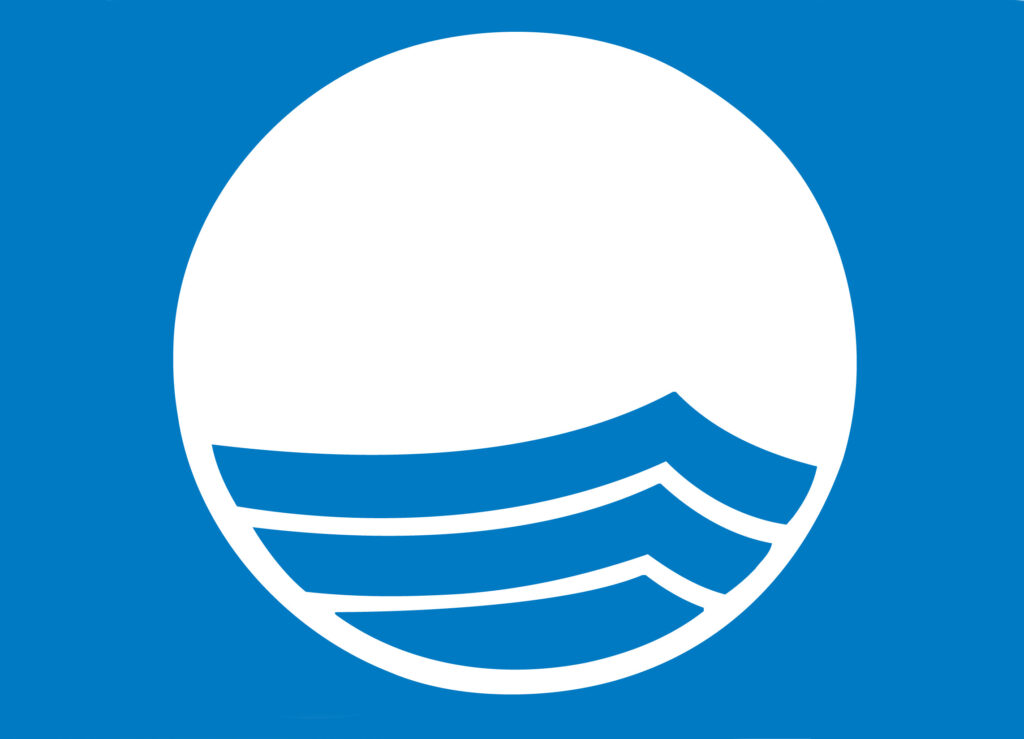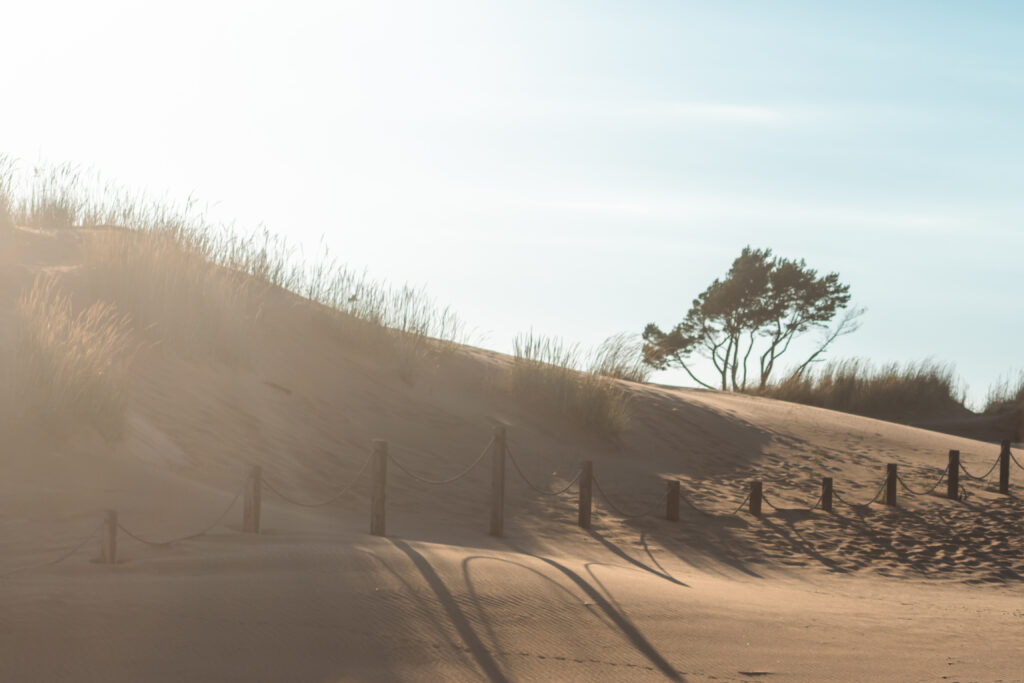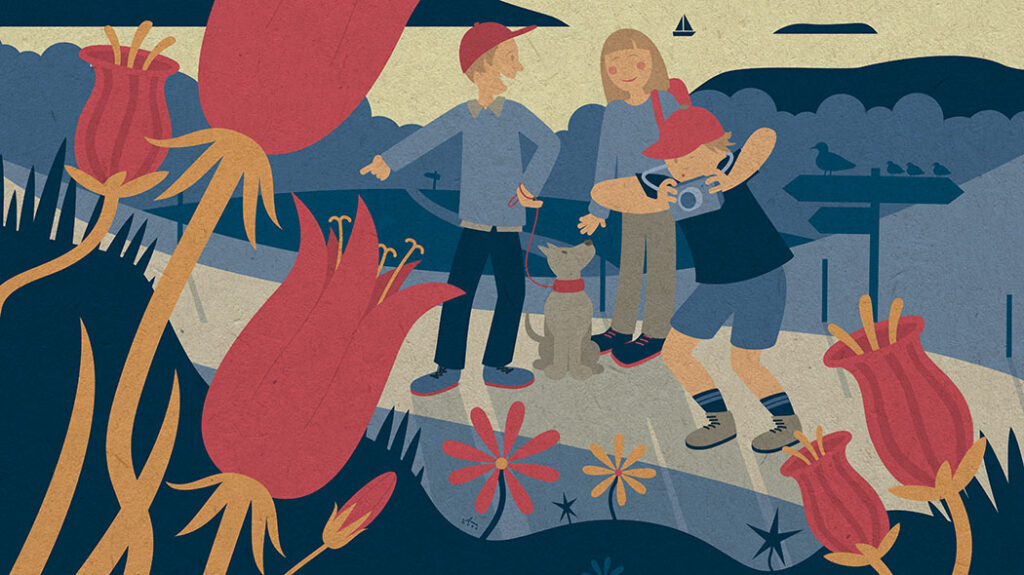Sustainable tourism in Yyteri
Yyteri in Pori is the first Finnish destination to be granted the Blue Flag certificate in the beach category. Blue Flag is one of the world’s most recognised eco-labels awarded to beaches, marinas and sustainable boating tourism operators.

Yyteri is a one-of-a-kind destination that offers opportunities for fun in the sun around sand dunes that are protected under the Natura programme. With unique nature and excellent services, Yyteri offers something to enjoy all year round. Yyteri means different things for different people, but there is one experience that is common to every visitor: in Yyteri, you will discover your true nature.
The guiding themes of the development of Yyteri are nature, beach, cleanliness and safety. An important focus area in the development work is the promotion of sustainable tourism in Yyteri. All of the development work related to Yyteri is carried out in a sustainable and responsible manner.
A Blue Flag worthy beach
Yyteri Beach was awarded the highly regarded Blue Flag certificate in the beach category on 27 April 2022. The certificate is awarded by the world’s largest environmental education organisation, the Foundation for Environmental Education (FEE international). To be eligible for Blue Flag certification, the participant must meet and maintain detailed criteria relating to the environment, safety and accessibility.
Blue Flag is one of the world’s most recognised eco-labels awarded to beaches, marinas and sustainable boating tourism operators. Yyteri Beach served as the pilot site as Finland’s first Blue Flag beach.
The international recognition is evidence of the tourism industry’s commitment to developing environmentally friendly destinations and looking after ecologically sensitive areas, such as coasts and seas. In today’s world, the beaches of Yyteri serve as a reminder that travel destinations can be changed and made more environmentally friendly.

Join us in looking after the sensitive ecosystem of Yyteri’s dunes
Yyteri Beach and the surrounding area is protected in line with the protection objectives of the Natura 2000 network. Protection is necessary for the conservation of biodiversity and the beauty of the area. The protection measures ensure the conservation of the area’s natural habitats and species. Yyteri is the largest active and continuous stretch of dunes in southern Finland. The continuously changing and evolving area is one of the most significant protected threatened dune habitats in Finland.
There would be no coastal dunes if it were not for the plants that bind the wind-blown sand. Therefore, to protect the vulnerable dune environment, all visitors in Yyteri should be careful not to harm the lyme grass and other flora in the area.
The dunes in the area are restored by installing windbreaks and planting lyme grass, which is a typical plant for dunes. The purpose of the windbreaks is to restore and preserve the shape of the dunes by accumulating and binding sand blown from the beach by the wind.
The dunes are also part of the environmental education of schools. Each year, local schoolchildren participate in the restoration of Yyteri Beach and the dunes by planting lyme grass and collecting algae that has been been washed up on the beach. More information on the dunes of Yyteri and their restoration (in Finnish): https://www.pori.fi/intopolku/ymparistopolku/oppimiskokonaisuus-yyterin-luonto
Please don’t walk on the dunes or step on the lyme grass!
Coastal dunes are a vulnerable habitat. Please ensure their preservation by using the gangways and flat parts of the beach.

Let’s enjoy Yyteri together!
Keep these things in mind when moving around Yyteri!
- Please do not damage the vegetation of the Yyteri dunes and elsewhere in the area. Do not walk on the dunes or ride a bicycle on them.
- Keep to the signposted hiking trails, duckboards and shoreline.
- Please refrain from doing harm to animals or their nests.
- Making a fire, putting up a tent and other camping activities are prohibited. Yyteri has its own camping site and signposted places for making a fire. Please take forest fire and grass fire warnings into consideration.
- Moving around the area on motor vehicles or horseback is prohibited. You can ride a bicycle along the shoreline and the marked routes. Please do not ride a bicycle elsewhere on the sand.
- Going to Munakari Spit or the sandbank that leads to it from the beach is not allowed between 1 April and 31 July.
- Instead of motorboats, we recommend that you opt for sailing or standup paddleboarding. Boating is not allowed within 250 metres of the shore.
- Yyteri Beach is a dog-free zone. There is a separate beach for dogs at Merisatamatie 13.
Keep Yyteri clean – waste and recycling
- Please do not leave the packaging of your picnic meal or any other waste on the beach. Dispose of all waste in the recycling bins provided. You should also minimise the amount of food thrown away.
- Tidy up after yourself at picnic spots and keep to the trails in order to preserve the nature along the routes.
- Reduce, recycle and sort your waste. Waste disposal is available at Yyteri Square and at the beach near the toilets. The waste disposal points have separate containers for glass, metal, paper and cardboard.
- Please do not burn waste at the campfire sites. Clean paper should also be recycled.

Yyteri is developed sustainably
Yyteri’s nature is a unique pull factor. Yyteri, the Bothnian Sea National Park and the Natura conservation status of the area combine emerging tourism trends: clean nature, beaches, safety and sustainability. These pull factors are respected in all aspects of Yyteri’s development, and due consideration is given to the basic elements of the area: sand, sea and pine forests.
Yyteri is developed in close cooperation with the authorities, local businesses and other organisations, and the local residents. Yyteri has a strong commitment to social responsibility. This includes employing young people to clean the beach, for example. The local residents and people who use the area are engaged in looking after the environment through various volunteer work campaigns, among other activities. Stakeholder cooperation is used to carry out concrete conservation and cleaning work. The local residents are also engaged in planning the future of Yyteri.
Yyteri also supports eco-friendly mobility in the area. For example, there are companies that rent mountain bikes and fatbikes in the area. Yyteri’s connections are continuously developed: during the summer season, Yyteri can be easily reached by public transport thanks to additional buses whose timetables are aligned with train arrivals and departures in Pori.
The preservation of the dunes is ensured by directing visitors to use gangways and the flat parts of the beach. Some of the gangways are made from recycled materials. The various signboards in the area provide a wealth of information on the local nature, how to move around the area and how to reduce littering. The preservation of the natural value of the dunes and highlighting Yyteri’s unique flora and fauna are also emphasised in the signboards. Special attention has also been paid to waste management and using solar panels for electricity production, for example. Sustainability is taken into account in all material choices in construction at Yyteri. Yyteri branded products are also selected with sustainability in mind.
Sustainability is an increasing priority for tourists, and it is also a strategic pull factor for Yyteri. Yyteri is developed for visitors while placing the highest priority on nature values and working towards a sustainable future. The aim is to keep the beach authentic and clean for future generations.
Outdoor Etiquette – General guidelines for nature enthusiasts
In addition to Yyteri’s own responsibility guidelines, nature lovers should adopt the Outdoor Etiquette to accompany them on every adventure. Read more about the Outdoor Etiquette here.
